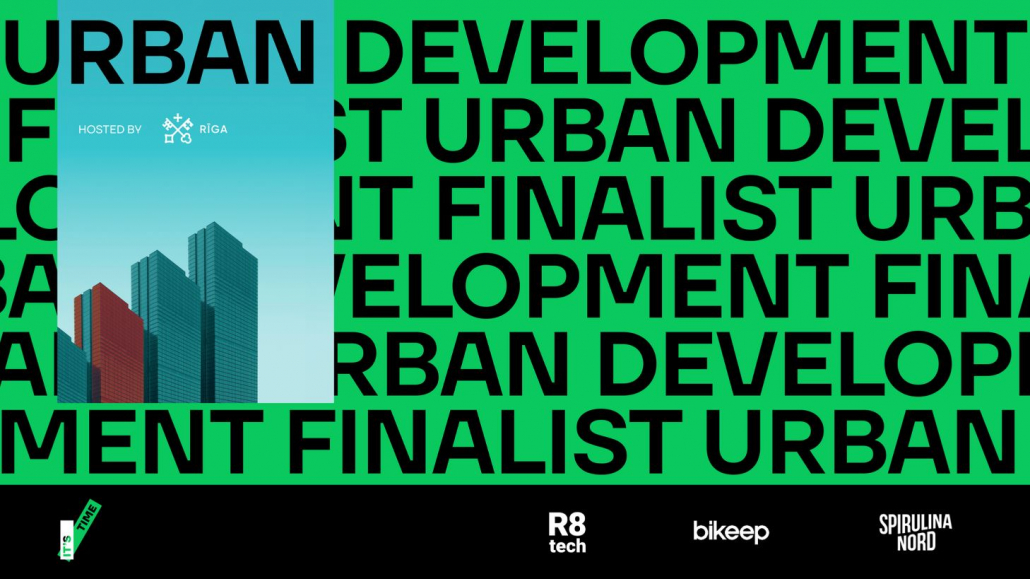Baltic Sustainability Awards 2023 concludes with game-changing initiatives in six award categories that encompass every facet of sustainability
The Baltic Sustainability Awards is an annual event dedicated to recognizing and celebrating outstanding sustainable initiatives in the Baltic region. Now in its third year, the awards seek to inspire and promote sustainability across various sectors, from businesses to policymakers and thought leaders. The theme for this year’s Baltic Sustainability Awards was “It’s Time”, emphasising the urgency to accelerate innovative solutions and act decisively towards creating a sustainable future in the Baltics.
The awards ceremony and forum took place on December 7th in the city of Riga at Splendid Palace. This year’s aim was to identify, amplify, and accelerate impactful, sustainable initiatives that could serve as blueprints for meaningful change. Organisations and individuals were invited to apply in the following categories:
- Climate Innovation – Initiatives that aim to address the climate crisis by developing innovative solutions that reduce greenhouse gas emissions.
- Circular Economy – Projects that focus on resource efficiency, future food innovations and waste reduction by designing out waste and pollution.
- Energy Technologies – Solutions that accelerate the transition to clean energy by deploying technologies that reduce greenhouse gas emissions, increase energy efficiency, and promote renewable energy sources.
- Social Initiatives – Endeavors that aim to elevate society’s welfare by addressing social and environmental challenges, promoting social equity and inclusion.
- Urban Development – Program that envision greener cities, spaces, and mobility by designing sustainable urban systems.
- Sustainability Ambassador – Individuals that inspire others to be more sustainable by advocating for sustainable policies and leading by example.
In this year’s edition the Future-Ready Urban Development category was hosted by the Riga local government. The role of Riga City as the host is crucial. Riga, as an active doer in sustainable urban development, showcases its commitment to creating a green, efficient, and livable city. Hosting this category aligns with Riga’s ongoing initiatives to integrate sustainability into urban planning, emphasizing the importance of eco-friendly solutions in city development.
“The EU is moving towards climate neutrality by 2050, Riga has taken a step forward and has been selected as one of the 100 cities that will aim to become climate neutral by 2030. This facilitates the creation and development of innovations within the city, as we need to seek new ways on how to address already existing challenges. Change is never easy, even when we know that it will make the city more livable, convenient and climate friendly. That is why we support every effort in this transformation, facilitating new innovative solutions and how together we can create something meaningful and make the changes in the city together.”
Inese Andersone, Head of the City Development Committee, Riga local government.
Meet the finalists in Future-Ready Urban Development category:
These initiatives are setting new benchmarks in urban sustainability. They’re tackling crucial issues like CO2 emissions, local nutrition, and urban transport, showing us that the future of our cities is green, efficient, and profoundly connected.
R8 Technologies, Pan-Baltic:
- Initiative: R8tech offers a Human-Centric AI Solution for climate neutrality in real estate, enhancing building operations and reducing CO2 emissions.
- Impact: Their technology could lead to significant energy savings and reduced carbon emissions in the building sector, a key area in the fight against climate change.
SpirulinaNord, Latvia:
- Initiative: This company establishes urban Spirulina farms to provide fresh, sustainable, and nutrient-rich foods, utilizing innovative cultivation methods to enhance Spirulina’s nutritional profile.
- Impact: Their model could redefine urban agriculture, providing a sustainable, local source of nutrition in densely populated areas. By producing nutrient-rich Spirulina close to consumers, they can reduce the environmental impact associated with transportation and storage, and potentially inspire similar urban farming initiatives globally.
Bikeep, Estonia:
- Initiative: Bikeep OÜ is addressing urban transportation challenges by developing a network of smart bike stations. These stations offer secure and convenient bike parking, equipped with advanced security features and a reservation system, promoting cycling as a practical and safe mode of urban transport.
- Impact: The initiative encourages more people to cycle, reducing urban congestion and pollution, and contributing to a healthier, more sustainable urban environment. By enhancing the convenience and security of cycling, Bikeep OÜ’s solution has the potential to transform urban transportation systems, setting a precedent for smart, eco-friendly city innovations.
The winner of the Future-Ready Urban Development category:
Estonia’s R8 Technologies, steered by Klaus Ek, is pioneering in making buildings smarter and more sustainable, addressing the global challenge of CO2 emissions from urban development.
Baltic Sustainability Awards are hosted by Helve together with founding partner Rimi Baltic. The initiative is supported by strategic methodology partner EY Baltic, partners Luminor and Riga local government.
For more information, please visit www.balticsustainabilityawards.eu

